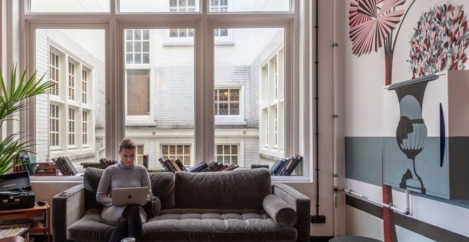July 20, 2020
People returning to the office fear shared spaces while looking forward to meeting colleagues
 Mindspace has published the results of a new survey of over 1,000 members across the firm’s sites in the UK, the US, Europe and Israel, revealing the anxieties, intentions and changing habits of many employees in the Western world as they begin returning to the office for the first time since they went into lockdown earlier in the year. Unsurprisingly many of the issues focus on sharing space with other people, especially in building amenities and shared spaces as well as on public transport. At the same time, the things people have missed most about office life are also about the spaces and times they share with other people.
Mindspace has published the results of a new survey of over 1,000 members across the firm’s sites in the UK, the US, Europe and Israel, revealing the anxieties, intentions and changing habits of many employees in the Western world as they begin returning to the office for the first time since they went into lockdown earlier in the year. Unsurprisingly many of the issues focus on sharing space with other people, especially in building amenities and shared spaces as well as on public transport. At the same time, the things people have missed most about office life are also about the spaces and times they share with other people.
The report also looks at long term attitudes to office life with most people looking forward to having more choice about how much time they spend in the office.
Key findings for Londoners include:
- Going to the toilet (43 percent) and the commute (48 percent) top the list as the most feared factors for returning to the office
- In office life, Londoners have missed being around their colleagues (74 percent) and bouncing ideas off one another (43 percent) more than anything else
- 33 percent plan to return to the office by the end of the summer, with 53 percent aiming to return later in the year and 15 percent not planning to return at all this year
- 44 percent plan to return for 2-3 days a week, with only 5 percent looking to return for the full 5 days
- Nearly 75 percent take public transport to get to their offices (located in Shoreditch and Aldgate), 30 percent of which intend to change their method of commute and 30 percent saying they will continue as before
Key findings across their global community, including Germany, Israel, the Netherlands and Poland, where lockdown restrictions have already been lifted:
- Top concerns are: Coworkers not taking social distancing seriously and the ability to social distance while working (65 percent of those interviewed ranked at one of these factors as their biggest concern)
- Countries where the virus has a less severe health impact have already seen a significant number of workers return to Mindspace offices:
- Israel: 57 percent indicated they had already returned, with another 27 percent indicating they are going back in the next 4-8 weeks
- Germany: 33 percent indicated they had already returned, with another 40 percent indicating they are going back in the next 4-8 weeks
- Poland & Romania: 27 percent indicated they had already returned – with another 42 percent indicating going back in the next 4-8 weeks.
- 30 percent (an average of all members who were surveyed) of those who commute on public transport either have already changed or intend to change their method of commute whereas 34 percent will not.













